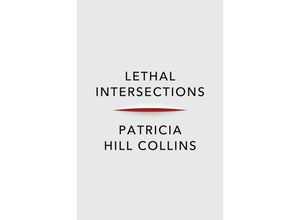School shootings police misconduct and sexual assault where people are injured and die
dominate the news. But how are these incidents of violence and extreme harm connected? In this
new book world-renowned sociologist Patricia Hill Collins explores how violence differentially
affects people according to their class sexuality nationality and ethnicity. These invisible
workings of overlapping power relations give rise to what she terms 'lethal intersections'
where multiple forms of oppression converge to catalyze a set of violent practices that fall
more heavily on particular groups. Drawing on a rich tapestry of cases from investigative
journalism feature films documentaries and fiction Collins challenges readers to reflect
upon what counts as violence today and what can be done about it. Resisting violence offers a
common thread that weaves together disparate anti-violence projects across the world. When
parents of murdered children organize against gun violence when Black citizens march against
the excessive use of police force in their neighborhoods and when women and girls report
sexual abuse by employers coaches and community leaders the ideas and actions of ordinary
people lay a foundation for new ways of thinking about and combating violence. Through its
ground-breaking analysis Lethal Intersections aims to stimulate debate about violence as one of
the most pressing social problems of our times.

